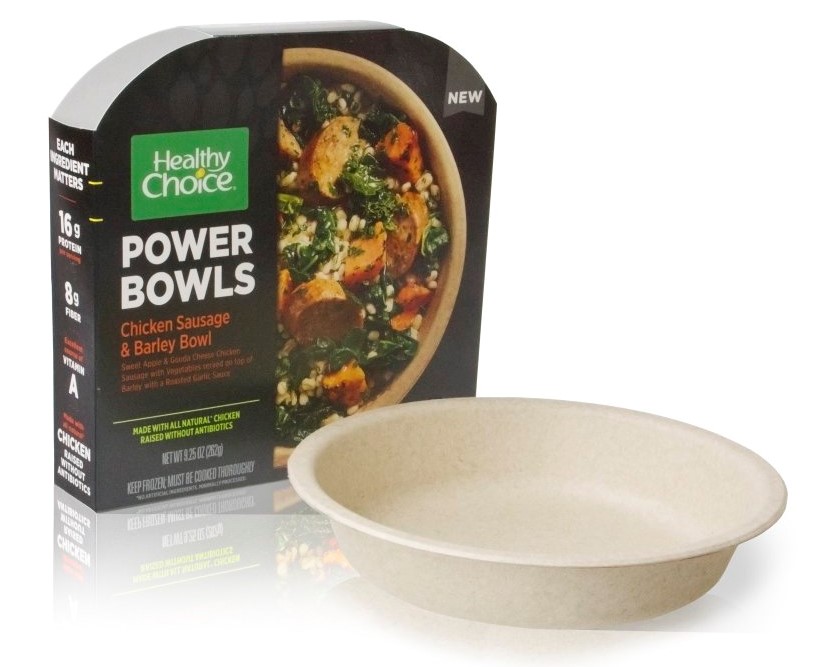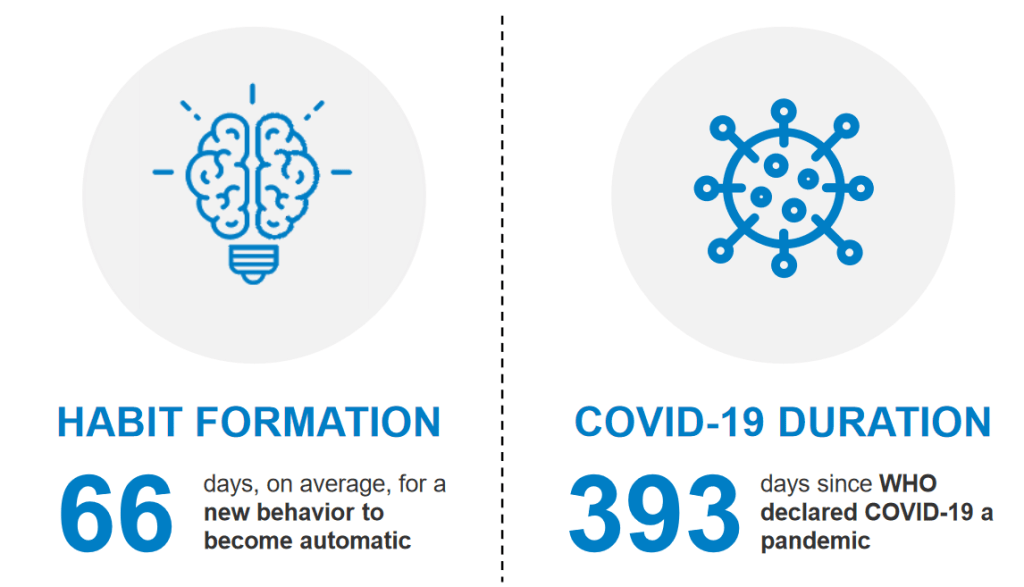Conagra – now known as Conagra Brands – is one of the largest food companies in the world. The name Conagra is not as well-known as some of the other food giants (Nestlé, PepsiCo, Kraft-Heinz, etc.) despite being a portmanteau of the words consolidated and agriculture (so hot!). But its brands should be familiar to many: Birds Eye, Duncan Hines, Marie Callender’s, Slim Jim, Boom Chika Pop, Earth Balance, and Gardein, to name a few.
I wrote an ethical review of Earth Balance, one of the first vegan alternatives to butter, over on Ethical Bargains recently. I plan to review Gardein at some point – Gardein is another well-known vegan brand that, like Earth Balance, was acquired by Conagra in 2018. Researching Earth Balance made me want to know more about its new parent corporation, so this post will be a general assessment of Conagra’s social and environmental impact.
Conagra – social and environmental impact
When evaluating Amazon’s social and environmental impact, I started with the company’s 2020 sustainability report. In a similar vein, I’ll look at Conagra’s own reporting to get a feel for things, starting with the company’s 2020 Citizen Report. The opening sentence in the Sustainable Agriculture section of Conagra’s Citizen Report is this:
Conagra Brands is a proud partner of U.S. Farmers and Ranchers in Action, working across the value chain with farmers, ranchers, food and agriculture stakeholders to co-create sustainable food systems.
The U.S. Farmers and Ranchers in Action (USFRA) exists to “educate consumers on modern agricultural practices” and to counter negative publicity around factory farming and intensive agriculture. For example, the USFRA supports the raising of chickens in battery cages and feeding with antibiotics. The USFRA switched between two contradictory tactics in attempts to persuade the public on antibiotics usage in animal feed, revealing a lot about the organization’s character.
Besides Conagra, USFRA Platinum-level members include Monsanto (Bayer) and McDonald’s. It’s therefore not too surprising that the USFRA works hard to convince consumers that GMOs and current usage levels of pesticides are necessary and that organic farming (regenerative agriculture, etc.) is just idealistic nonsense.
Details from Conagra’s 2020 Citizen Report
The general USEFRA ethos is reflected in Conagra’s Citizen Report, although not overtly – there are still plenty of instances of the word sustainability in the report. I’ll cover the report now with some brief quotes and comments.
Conagra’s egg sourcing
Between 1–10% of our annual egg supply is cage free. – Conagra Brands 2020 Citizen Report
That speaks for itself, really. It’s strange that they can’t pinpoint the percentage to something more precise than 1-10%, but in any case it’s a low percentage.
There’s the usual rhetoric that Conagra wants its egg supply to be 100% cage free by 2025, which I’m taking with a very large pinch of salt, particularly as Conagra is so proud of its USFRA membership.
Conagra’s greenhouse gas emissions
In fiscal year 2020, our Scope 1 and 2 greenhouse gas emissions were approximately 864,513 metric tons, which is less than 2% increase from our fiscal year 2019. – Conagra Brands 2020 Citizen Report
So GHG emissions have gone up from 2019 to 2020, while the world is on fire. Sometimes overall company emissions go up a little while emissions per unit of product go down, but this isn’t the case either:
GHG emissions per lb of product produced have not changed significantly from 2019 to 2020. – Conagra Brands 2020 Citizen Report
Conagra’s waste footprint
Waste generation per lb of food produced went up by 28% from 2019 to 2020!
Diversity at Conagra
Management is 68% male and 86% white and the board of directors is 73% male and 73% white.

Palm oil sourcing at Conagra
This is a big one. I covered it in the post on Earth Balance so I’ll refer you to that post for more information on Conagra’s palm oil sourcing policy.
So, Conagra buys palm oil on commodity markets, etc., and currently uses the RSPO Book and Claim system by purchasing PalmTrace Credits to offset the damage caused by the purchase of non-sustainable palm oil. In the hierarchy of palm oil certifications, this is the weakest certification level from the weakest certification body (RSPO). – Is Earth Balance ethical?
I rated Earth Balance 1/5 Green Stars in that post. I used to have a higher rating for Earth Balance because the company had been working with the Palm Oil Innovation Group (POIG) to raise standards for palm oil sourcing. It seemed that Earth Balance was on the verge of setting a good example in the industry and then the POIG relationship ended around the time that Conagra took over.
Palm oil is a staple of many of Conagra’s products, from frozen meals to microwave popcorn (and Boom Chicka Pop, which people seem to think is indie and cool) and it’s really a shame that the company can take something as innocuous and low-impact (in theory) as popcorn and make it so destructive.
Conagra’s compostable bowls
One bright spot in Conagra’s 2020 Citizen Report is the introduction of a plant fiber bowl for frozen dinners. This is partly a response to a trend (particularly in Europe) where customers are no longer willing to microwave dinners in plastic bowls, and partly an improvement in carbon and material footprints.
By using plant-based fiber bowls instead of plastic for Healthy Choice® Power Bowls, Hungry-Man® Double Meat Bowls and P.F. Chang’s®single-serve meals, we reduced the carbon footprint of packaging manufacturing for these products by 50–70%.
This is a good step forward, for sure. However, when your product is called Hungry-Man Double Meat Bowl, the food element is a bigger problem than the material used to make the bowl 😉 A good percentage of Conagra’s products are meat-based frozen meals, with the notable exception of Gardein, which I’ll get back to later.

Conagra’s processed food
To get a feel for the company’s growth strategy, I took a look at Conagra’s most recent earnings presentation (Q3, 2021). There was a big emphasis on taking advantage of the dramatic changes in human habits during lockdown. Namely, the rise in consumption of frozen dinners and the increase in snacking that accompanied the upsurge in online streaming.
Conagra does not want customers (especially younger Gen Z and Millennials) to move away from frozen dinners and packaged food – about half of the Q3 presentation was focused on making these habits stick for as long as possible (touching on human psychology and social media impressions).
You could say that this is fine – the company’s main focus is frozen animal-based meals and processed food and the company is transparent about that. Most of us eat some processed food, whether snacks or frozen dinners, so perhaps this segment will never go away. But it’s problematic from climate and waste perspectives.
A large reason for starting my new site, Ethical Bargains, was to highlight more ethical options within the processed food category. Even at that, I think that our intake of processed of food should be kept to a minimum, and that cooking should be viewed as a form of activism.
You can’t blame Conagra for doing market research and trying to sell more of their products. But it looks like the company is one of the slowest on the planet to take climate change and habitat destruction seriously, and you can certainly blame them for that. It seems to me that Conagra is on track to become the Exxon of the food world unless it changes track, and fast.
Should you support Gardein?
Gardein was founded in 2003 by Yves Potvin, who had previously founded Yves Veggie Cuisine. Gardein was purchased by Pinnacle Foods in 2014 and then Pinnacle was acquired by Conagara in 2018.
Should you buy Gardein products now that the brand is owned by Conagra?
To put it more general terms: How much we should support ethical brands that are owned by a less-ethical corporation? I think it’s an important question as many ethical brands are being bought out by huge multinational corporations.
On the one hand, you’re supporting a corporation’s move towards more sustainable product lines. Conagra will certainly notice if Gardein product sales are growing faster their Hungry Man line of meat-based meals. So you can argue that the only way these low-ranking multinationals will change is that we support their sustainable/ethical products (and avoid the other product lines).
You could argue that at this stage of our climate emergency, it may be time to just abandon most of the food multinationals (Nestlé, PepsiCo, Kraft-Heinz, Conagra Brands, etc.) and only support mission-driven companies.
Obviously, I would only support Gardein products if the products continue to rate well. Earth Balance serves as an example of a brand that has degenerated since Conagra’s purchase (it was marginal before that anyway). So I think my next post will be to examine Gardein as it’s the only Conagra brand that I would consider supporting.
Ethical rating for Conagra Brands
I’m rating Conagra Brands 1/5 Green Stars for social and environmental impact – the same as my rating for Earth Balance. It would have been 0.5 or even zero Green Stars if it wasn’t for the improvements in packaging and Conagra’s ownership of Gardein.




Something to avoid at all costs, I’d say.
LikeLiked by 1 person
That’s really interesting about the new compostable bowls made from plant fiber!
I wasn’t really familiar with Conagra (though I do recognize some of the brands, like Boom Chika Pop and Chef Boyardee. I don’t really see how they plan on getting to 100% cage-free egg supply by 2025 if potentially only like 2% of their current egg supply was cage-free (although I just found their 2021 report, and that says as of the time of writing, 20% of their eggs were cage-free, and they expect to be at 40-50% by the end of 2022, so they have been making strides forward with that). That report also notes that 100% of their palm oil is now covered by RSPO Mass Balance Certification, so that sounds like a (very slight) improvement from 2020?
LikeLiked by 1 person
I saw that update on the eggs too. So I think they are headed in the right direction.
I reviewed Gardein plant-based turk’y roast over on my other site, Ethical Bargains and mentioned the improvement in egg sourcing. I figured that Gardein deserves around 3.5 Green Stars.
Supporting ethical brands that are owned by non-so-ethical companies encourages movement by the parent company in the right direction 🙂
LikeLike
I was not thrilled when I noticed the red tint to the Dukes Hatch Green Chile Smoked Shorty Sausages and found out the coloring is made from ground bugs.!!! This is really ridiculous. Other Countries use natural coloring (NOT BUGS). I pick up a bag of these every once in a while while on a road trip, but will not be again. They brag about being Gluten Free which I am and made with fresh pork not frozen and made in small batches, no MSG, no added Nitrates and not Liquid Smoke, but they fail to tell you that the casings are colored with BUGS!!!! EWWWWWWWWW!!!! 😦
LikeLiked by 1 person
We have switched as much of our food purchases to Con-Agra brands as they are not left-win wacko or anti-gun. Buy Con-Agra brands if you care about America.
LikeLike
if you love your family, don’t feed them Conagra or anything that comes in a box. Rather be inconvenienced or develop cancer? Raising your own is the only way to go and kids love it too.
LikeLike